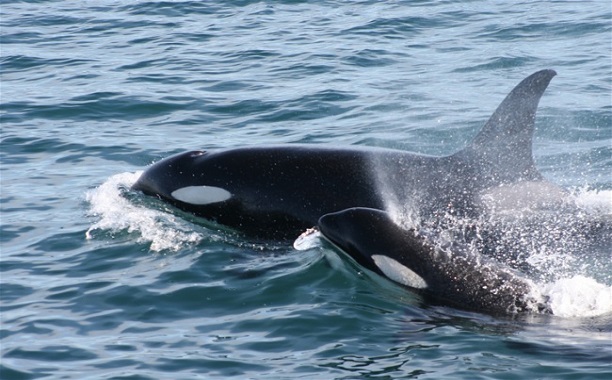Female killer whales, like human females, go through menopause and live a long life after they are no longer able to bear young. A new study suggests that the reason killer whales go through menopause is related to who holds information necessary for the pod’s survival.
A team of researchers discovered that menopausal killer whales appear to hold a wealth of information and act as a library to direct their pods to find fish when food is scarce. This allows the older females to improve the chance of survival for the group, National Geographic reported.
Female killer whales usually go through menopause and stop bearing young at the age of 40, living up to 90 years. Males, on the other hand, live to be just 50.
[quote text_size=”small” author=”– Darren Croft” author_title=”Behavioral ecology at the University of Exeter, lead researcher”]
A lot boils down to how the groups are structured. For these resident females, the older they get, the more related they are to their groups. Therefore, it’s more advantageous in an evolutionary sense for menopausal killer whales to stick around and help more of their relatives survive.
[/quote]
Darren Croft, a behavioral ecologist, and his team looked at southern resident killer whales, groups of whales of around 80 who lived in the waters around Seattle and mostly ate salmon. The team analyzed observational data for the whales that has been compiled since 1976, finding that females were more likely to lead pods than males, and that females over 35 were more likely to lead than younger females.
The team also discovered that having a menopausal leader was more likely in years when fish were scarce.
The researchers combined this with the findings of a 2012 study that found menopausal females increased the survival chances for their offspring, giving greater credence to the concept that menopausal females store a lifetime’s worth of knowledge for the good of the group.
Menopause is fairly rare, as human women and just two species of whales really outlive their reproductive lives. Researcher Lauren Brent speculates that the reason is the same across all three species, as females become valuable due to their wisdom and knowledge. Brent says that, before writing when humans lived on the savannah, the same ability was likely highly valued, NBC reported.
























